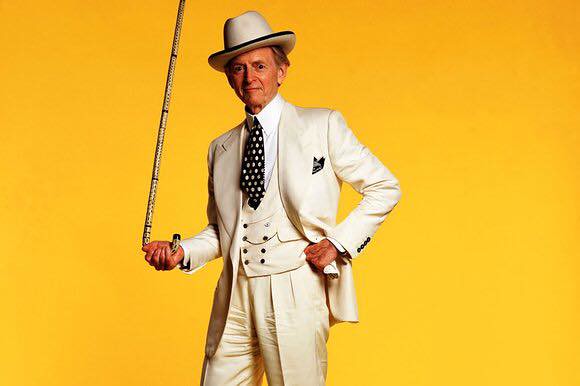A journalist on holiday in Atlanta: ‘A Man in Full’ by Tom Wolfe review
A Man in Full follows a variety of characters as they traipse across Atlanta, their paths eventually seeming to converge despite having wildly different aims. However, the book focuses on four main protagonists. Charlie Croker is attempting to save his business from bankruptcy. Roger White is roped into attempting to support his old college friend, the Mayor, attain re-election in the face of a charismatic new opponent, alongside becoming entangled with a thorny rape case involving a star athlete. Raymond Peepgass is searching for a way to enhance his standing financially and professionally. Finally, Conrad Hensley is a young father and factory worker whose life quickly spirals into a hellish sort of farce. But, despite the array of figures, Wolfe slyly hints that they are more similar than they seem, at least in terms of their aims. All seek that ultimate commodity which thrums underneath the pages throughout and is a singular obsession of Wolfe’s: status. The characters are thus not so much individual entities as prisms through which Wolfe can depict how the struggle for status dominates everything from ghetto hoods menaced by the spectre of poverty to plush boardrooms that scream of sybaritic indulgence. Given the aversion to moralising, that stands as the true value of such a work: a desire to preserve in aspic every aspect of this magnificent city – not just for its own sake, but as a microcosm of America generally.
In my view, Wolfe is not so much a true novelist as a journalist on holiday. What is missing, in my view, is the step outwards, from the immediate to the eternal – the transformation of surroundings or characters into metaphors for something larger. The prose is often winding, sometimes circuitous but never mundane. Wolfe understands that the secret of excess is to plunge in headfirst rather than tentatively dip one’s feet in the water. Using only one exclamation mark? Hardly. Three or four in quick bursts appearing at various times on the same page is the only logical course. Wolfe is often portrayed as a successor to Dickens, and certainly, there is some truth here in the sense of using the novel to portray and examine a bustling metropolis. Yet there are no great leaps of imagination in this book– no characters that seem particularly memorable in the mould of Mrs Havisham or Oliver Twist.
Wolfe’s collections are well worth reading even to this day, for the sheer delight evoked by his flamboyant prose as much as the incisive commentary provided on various issues
Wolfe definitely seems to have something of an infatuation with the ideal of a stereotypical ‘alpha’ male, embodied by the aging but still mighty Charlie Croker who despises intellectuals and pampered businessmen. Despite Charlie’s own internal dialogue being shot through with doubts and insecurities, most other characters upon meeting him continue to be bowled over by nothing more than the overwhelming masculine aura he exudes. What I find curious is that despite the several lascivious descriptions and frequent running commentary about women being the downfall of man, a woman is just as often shown to be the reason for that man’s actual success in the world. The question is how aware Wolfe was of this dichotomy and what his actual position really was, though this being a novel, this is hardly a crucial factor. Again, we strike against the wall of careful reticence – the almost visible image of his stepping back – a habit preserved through decades of journalistic enterprise which makes it hard to tease out any lessons.
Seen as a sociological work (and it is worth remembering Wolfe took a PhD in Sociology from Yale), there is much to appreciate: we are treated to an in-depth, ultra-detailed breakdown of the various milieus of Atlanta alongside much background information regarding the city itself. But, in my view, Wolfe has more to offer as a journalist than a novelist; his collections are well worth reading even to this day, for the sheer delight evoked by his flamboyant prose as much as the incisive commentary provided on various issues. Wolfe was a reporter intensely dedicated to preserving the situation as it was and immersed himself in the world of a dizzying array of characters, from astronauts to hippies.
Returning to the novel, none of the characters made any particular impression on me, and there was no underlying message I took away. In some respects, it was similar to The Wire, that searing look at the soul of Baltimore. But that masterful series at least had the gumption to offer a unique poetic spin on several of the issues it grappled with and at least tried to offer some novel solutions (i.e., Hamsterdam). There was a sense of mythology underlying it all that was entirely missing from this pointillist construction of a city. Both are also afflicted with weak endings, but still deserve to be considered for what they say about America as much as anything else. Despite the title of the book, it is Atlanta that is the true main character and, in my view, the narrative hook of this work. Thus, the best part of this novel is how it reveals the city of Atlanta in full, from the profusion of details used to evoke the city landscape itself to the surgical dissection of the various social milieus that rise up throughout its streets.
Rating: 3/5

Comments